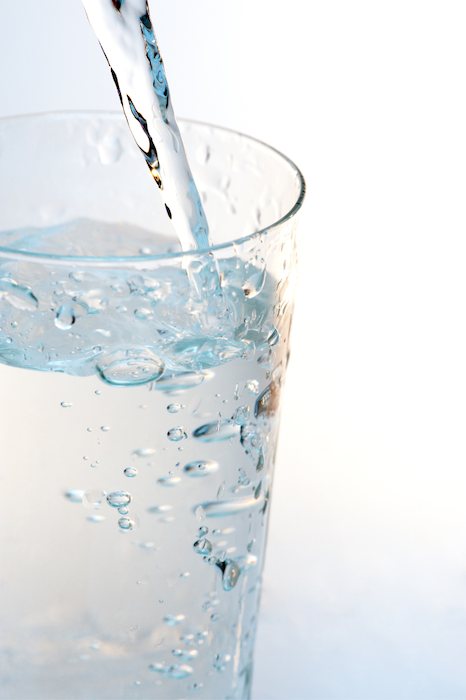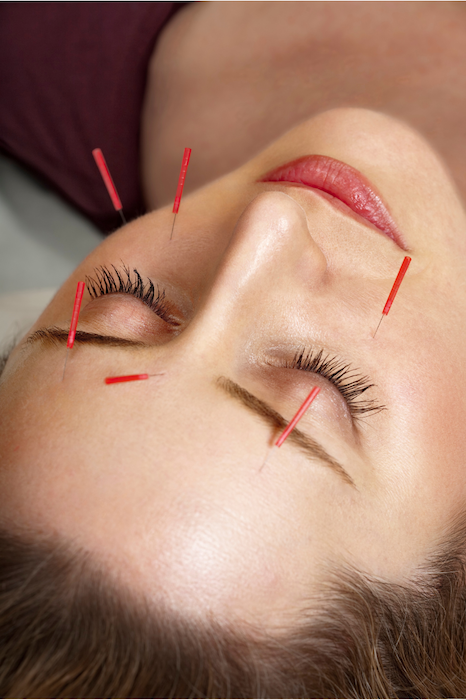If you suffer from migraines, then you know that they can be debilitating. Not only do they cause pain and throbbing in your head, but they can also make you feel nauseous and lightheaded. In some cases, migraines can even lead to vomiting or extreme fatigue.
I don’t want you or anyone you know to have to suffer through migraines. That’s why I wrote today’s article on how to help. If you want to try to prevent, reduce, or calm migraines, then follow these 17 self-care tips!
According to a study published in the journal Headache, spending time in nature can help to reduce the frequency and intensity of migraines. The study found that participants who spent at least two hours per week in green space experienced fewer migraines than those who didn’t. The researchers believe that the peaceful environment and fresh air may help to relax the mind and reduce stress levels, which can trigger migraines. In addition, being in nature can also help to increase levels of serotonin, a chemical that helps to regulate mood. So next time you’re feeling a migraine coming on, head to your nearest park for some fresh air and relaxation!
For people who suffer from migraines, managing the condition can feel like a never-ending battle. There are a variety of potential triggers, and it can be difficult to identify patterns without keeping careful track. This is where a symptom journal can be an invaluable tool.
By taking note of when migraines occur, what symptoms are present, and what possible triggers may have been present, it becomes much easier to start identifying patterns. Once patterns are identified, it becomes possible to take steps to avoid triggers and minimize the frequency and severity of migraines. For many people, keeping a symptom journal is an essential part of effectively managing migraines.

Migraines can be debilitating, and often seem to strike without warning. While there is no surefire cure for migraines, there are certain things that can help to lessen their frequency and intensity. One of the most important is staying hydrated.
Dehydration is a common trigger for migraines, so it’s important to drink plenty of water throughout the day. Aim for eight glasses of water per day, and make sure to drink even more if you are exercising or sweating profusely. In addition, try to avoid dehydration by avoiding caffeine and alcohol, which can both contribute to dehydration. If you are susceptible to migraines, staying hydrated is essential in helping to prevent them.
One of the most important ways to lessen the frequency and severity of migraines is to eat on a regular schedule. Skipping meals or going too long without food can trigger a migraine, so it’s important to eat breakfast, lunch, and dinner at roughly the same time each day. This will help to keep your blood sugar levels stable and prevent hunger headaches. If you stick to a healthy, regular eating schedule, you may find that your migraines become less frequent and less severe.
Research has shown that drinking alcohol is a trigger for nearly one-third of people who experience migraines. If you’re trying to reduce your migraine attacks, limiting your alcohol intake can be an effective strategy.
It’s important to note that not all types of alcoholic beverages are equally likely to trigger migraines. For example, red wine is a common trigger, while vodka is less likely to cause problems. So if you enjoy the occasional drink, opting for clear liquor may be a good option.
Of course, the best way to prevent migraines is to avoid all triggers. But if you enjoy the occasional drink, knowing which beverages are more likely to cause problems can help you make choices that will minimize your risk of a migraine attack.
Most people don’t realize that the quality of their sleep has a direct impact on their migraines. In fact, studies have shown that having good sleeping habits can help reduce the frequency and intensity of migraines. Here are some tips to help you get a good night’s sleep:
First, make sure that your bedroom is dark and quiet. This will help your body relax and make it easier to fall asleep. Second, establish a regular sleep schedule and stick to it as much as possible. This means going to bed and waking up at the same time every day, even on weekends. Finally, avoid caffeine and alcohol before bed, as these can interfere with your sleep.
By following these simple tips, you can help improve your sleep quality and reduce the incidence of migraines.

Acupuncture is a 3000 year old Chinese medical practice that involves the insertion of thin needles into the body at specific points. According to traditional Chinese medicine, this helps to improve the flow of energy or “qi” in the body. While acupuncture has been used to treat a variety of conditions, recent studies have shown that it can be an effective treatment for migraines.
One study found that acupuncture was more effective than medication in reducing the frequency and severity of migraines. In addition, acupuncture is believed to be a safe treatment with few side effects. This is important because many migraine medications come with a long list of potential side effects. Finally, acupuncture is a drug-free option for those who are looking for an alternative to medication. If you are suffering from migraines, talk to your doctor about whether acupuncture might be right for you.
Staring at a screen all day can cause eye strain, which in turn can lead to a migraine. Additionally, the blue light emitted by screens can disrupt your natural sleep cycle, making you more susceptible to migraines. Reducing your screen time can help to lessen the frequency and severity of migraines. By taking breaks throughout the day to give your eyes a rest, and avoiding screens for at least an hour before bedtime, you can help to reduce your risk of migraines.
One of the most effective ways to reduce the severity of a migraine is to avoid bright lights and loud noises. These stimuli can trigger a migraine or make existing symptoms worse. If possible, try to stay in a dark, quiet room until the migraine has passed. Additionally, you may want to consider wearing earplugs or an eye mask to further reduce exposure to potential triggers. While it is not always possible to completely avoid all light and noise, minimizing exposure can help to ease the discomfort of a migraine.
Regular exercise has been shown to help reduce the frequency and severity of migraines. Exercise helps to release endorphins, which have natural pain-relieving properties. In addition, exercise can help to reduce stress levels and improve sleep quality, both of which can help to prevent migraines. Even if you don’t suffer from migraines, being active is always a good idea!
Another good treatment for migraines is the use of hot or cold compresses. Applying a warm compress to the forehead and temples can help to soothe migraine pain, while a cold compress can help to reduce inflammation. Some people find relief by alternating between hot and cold compresses, while others find that one or the other works best for them. Whichever approach you choose, be sure to wrap the compress in a towel to avoid causing any further irritation. With a little trial and error, you should be able to find a method that provides some relief from your migraines.

Slow, deep breathing helps to relax the body and relieves stress. In addition, it increases the flow of oxygen to the brain, which can help to reduce inflammation and ease pain. While deep breathing exercises won’t cure migraines, they can help to reduce the frequency and severity of attacks. For best results, practice deep breathing exercises on a regular basis, even when you’re feeling well. That way, you’ll be prepared the next time a migraine strikes.
Caffeine is a common trigger for migraines, and cutting back on coffee, tea, and soda can help reduce the frequency and severity of headaches. Caffeine withdrawal can also cause headaches, so it’s important to cut down gradually rather than going cold turkey. If you typically drink a lot of caffeine, start by cutting back to one cup a day, and then eventually eliminating it completely from your diet. During headache episodes, avoid all forms of caffeine, as even small amounts can make the pain worse. By making this simple change, you can significantly reduce your risk of headaches.
For many people, magnesium deficiency can actually trigger migraines. Magnesium is a mineral that’s involved in over 600 processes in the body, including muscle contraction, nerve transmission, and blood sugar regulation. It’s also thought to have a calming effect on the brain, which may explain why magnesium supplementation has been shown to be effective in reducing the frequency and severity of migraines. If you’re suffering from migraines, magnesium may be able to help you.
In fact, research has shown that magnesium supplements can not only prevent migraines, but treat them as well! [1, 2]
This is one of the many, MANY reasons why our friends over at Purality Health have made a highly absorbable magnesium. It comes in easy-to-take pouches and tastes delicious (like vanilla)!
To see the several other ways that their magnesium could help you, along with ingredients, and how you can save up to 25% today…
If you’re one of the millions of people who suffer from migraines, you know how debilitating they can be. The good news is that there are many things you can do to help prevent or reduce the severity of attacks. In this article, I’ve listed fourteen self-care tips that have been shown to be effective for migraine sufferers. I truly hope they’re able to help you or a loved one get through these painful and inconvenient episodes.